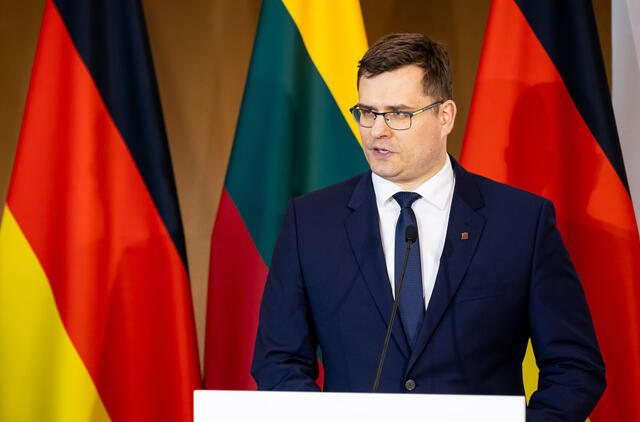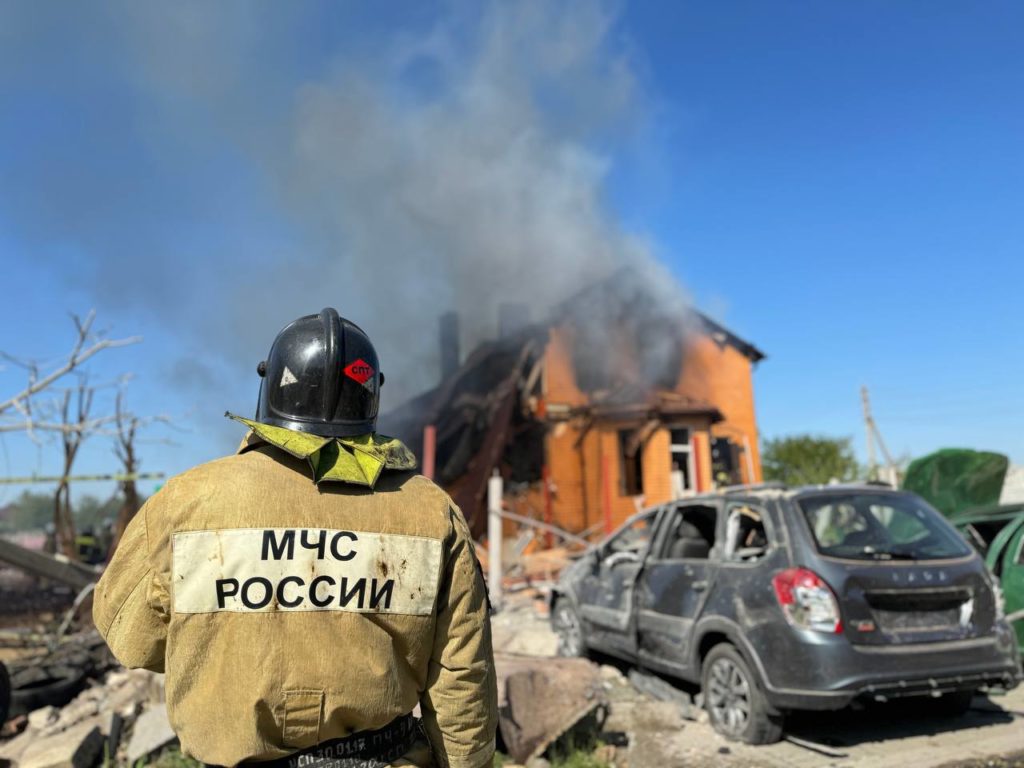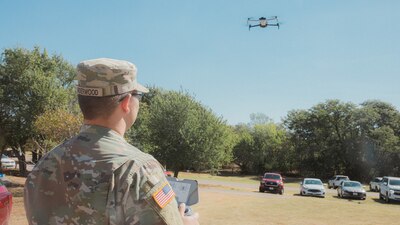Lithuania says NATO forces should shoot down Russian drones in region
A recent Russian drone crash in Latvia has sparked debate about the effectiveness of NATO's air policing mission in the Baltic region.


Lithuania’s Defense Minister Laurynas Kasčiūnas called for changes to NATO’s air policing mission in the Baltic states following a recent incident where a Russian military drone crashed in Latvia.
The call for changes comes after Latvia’s military leadership confirmed on 9 September that a drone that entered from Belarus and crashed on Latvian territory was a Shahed with a combat payload.
Kasčiūnas argued that the NATO mission “should not only patrol but also, if time permits, shorten the decision-making chain at the NATO level so that they can immediately take off and destroy drones if necessary,” according to the Lithuanian broadcaster.
The minister stressed the need for rapid information sharing with NATO headquarters when drones threaten to violate airspace.
“NATO headquarters assesses the situation, whether there is sufficient evidence that it is indeed a hostile drone and not some other lost aircraft, and then a quick decision is made to deploy air police aircraft,” Kasčiūnas explained the current process.
Kasčiūnas emphasized, “This is a certain algorithm, and it needs to be accelerated.”
When asked about Lithuania’s potential response to a Russian drone violating its airspace, the minister insisted it should be a collective NATO decision.
A Russian unmanned aerial vehicle crashed in Latvia’s Rezekne region on 7 September, the Latvian Ministry of Defense has confirmed two days later. In response to the incident, Latvia’s Ministry of Foreign Affairs summoned the Russian chargé d’affaires.
Read also:
- Lithuania, Latvia announce another aid package for Ukraine during their visit to Kyiv
- Iran’s missile transfer to Russia deepen strategic ties amid US sanctions, expert says
- Defense Express: Map shows how Ukraine could hit Moscow with Western missiles
You could close this page. Or you could join our community and help us produce more materials like this.
We keep our reporting open and accessible to everyone because we believe in the power of free information. This is why our small, cost-effective team depends on the support of readers like you to bring deliver timely news, quality analysis, and on-the-ground reports about Russia's war against Ukraine and Ukraine's struggle to build a democratic society.
A little bit goes a long way: for as little as the cost of one cup of coffee a month, you can help build bridges between Ukraine and the rest of the world, plus become a co-creator and vote for topics we should cover next. Become a patron or see other ways to support.



